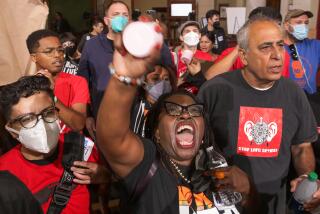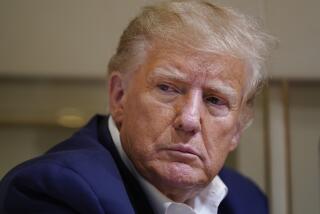Experts Canât Fill In Blanks of Watergate Tape
WASHINGTON â What was recorded during the 18 1/2-minute gap of one of President Nixonâs tapes will remain a mystery -- at least for now.
The National Archives says audio experts were unable to recapture intelligible sounds from test tapes that simulated the recording made famous in the Watergate scandal.
âI am fully satisfied that we have explored all of the avenues to attempt to recover the sound on this tape,â U.S. archivist John Carlin said Thursday. âWe will continue to preserve the tape in the hopes that later generations can try again to recover this vital piece of our history.â
In 2001, the archives created a panel of experts to determine whether advances in the field of forensic audio technology could recover what was on the tape recorded three days after the break-in at the Democratic National Committee headquarters in the Watergate. Based on disappointing results of two tests, Carlin decided not to continue the effort to turn the gap -- a series of clicks, hisses and buzzes -- into intelligible speech.
The gap is part of a recording made June 20, 1972, in the old Executive Office Building as Nixon chatted with his chief of staff, H. R. Haldeman.
News of the erasure, late the following year, eroded Nixonâs credibility at a time when his presidency was unraveling over the June 17, 1972, break-in.
Nixonâs secretary, Rose Mary Woods, testified that she was transcribing the tape when a phone rang. She said she must have pushed the wrong button and left her foot on a pedal, accidentally recording over part of the original conversation.
A panel of experts set up in the 1970s by federal judge John Sirica, who presided over the Watergate criminal trials, concluded that the erasures were done in at least five -- and perhaps as many as nine -- separate and contiguous segments. The panel never figured out what was erased.
Audio experts trying to recover what was said were not allowed to do tests on the original tape, which is stored at 65 degrees in a vault at the archives in College Park, Md.
The experts had to prove they could retrieve voices from test recordings that have been erased without damaging the test tapes before attempting to work on the original, said Susan Cooper, a spokeswoman for the archives.
More to Read
Sign up for Essential California
The most important California stories and recommendations in your inbox every morning.
You may occasionally receive promotional content from the Los Angeles Times.










